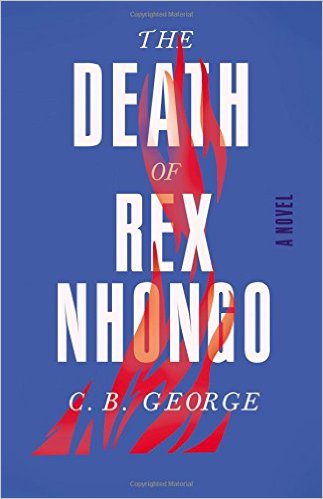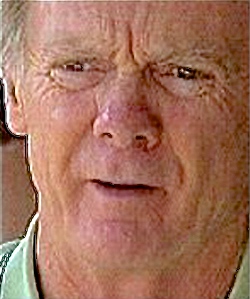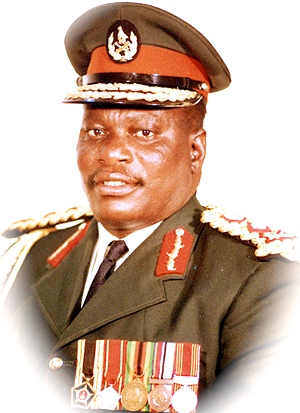“Here in Zimbabwe, I don’t think we see death like it is in the UK…The whites I have met don’t know what to do when there is catastrophe. They think it will never happen. Zimbabweans, blacks, we expect a catastrophe…We don’t panic. Our economy collapses, money’s worth nothing, HIV, angry ancestors, failing crops, crashing cars… and still we get up in the morning and still we have to feed ourselves and our children.” – Man in bar speaking to Jerry Jones.
 Author C. B. George, a mysterious author who provides no biographical information and no photograph, tells a story of contemporary Zimbabwe, still being ruled after almost thirty-six years by dictator Robert Mugabe, now aged ninety-two. A one-party ruler, he has been famed for his appropriation of white-owned lands and their redistribution to black farmers and political allies, the disappearance and death of political enemies, the use of terror, and gross human rights abuses, all to enforce his will and to ensure the retention of his office and his wealth. Here author C. B. George, who lives in the UK, according to the book jacket, presents the narratives of three couples who represent different aspects of contemporary life in Zimbabwe, primarily in the capital of Harare. The author’s sense of drama and his ability to pace the narrative to keep the reader continuously involved in the lives of his characters, while simultaneously focusing on the attempts of these people and their families to lead “normal” lives, suggest that he may have a background in television or film.
Author C. B. George, a mysterious author who provides no biographical information and no photograph, tells a story of contemporary Zimbabwe, still being ruled after almost thirty-six years by dictator Robert Mugabe, now aged ninety-two. A one-party ruler, he has been famed for his appropriation of white-owned lands and their redistribution to black farmers and political allies, the disappearance and death of political enemies, the use of terror, and gross human rights abuses, all to enforce his will and to ensure the retention of his office and his wealth. Here author C. B. George, who lives in the UK, according to the book jacket, presents the narratives of three couples who represent different aspects of contemporary life in Zimbabwe, primarily in the capital of Harare. The author’s sense of drama and his ability to pace the narrative to keep the reader continuously involved in the lives of his characters, while simultaneously focusing on the attempts of these people and their families to lead “normal” lives, suggest that he may have a background in television or film.

Guy Watson-Smith, whose family had owned the appropriated farm where Rex Nhongo was later found dead.
The novel opens with a brief Preface telling the story of Rex Nhongo, the nom de guerre of General Solomon Mujuru, a hero of the Zimbabwean War for Independence and former chief of the army, whose body was found completely incinerated in a farmhouse outside of Harare in August, 2011. Identification was possible only through dental records, though the rug on which the body was found was barely scorched. At an inquest, a maid and a private security guard on the property reported hearing gunshots two hours before the fire, though a special “VIP police security detail” just a few meters from the farmhouse heard nothing: Their radio was broken, their phones were “out of minutes,” and there had been a power failure. When the fire engines arrived from Harare, forty minutes away, all the water in their tanks had leaked out en route. The white owner from whom the farm had been appropriated by the rulers testified that the roof was made of asbestos sheeting and was fireproof and that the bedroom where the general was found had three doors and four double windows, making it virtually impossible for someone to get trapped. Ultimately, the general’s death was declared to be the result of “smoke inhalation.”
Though there are several references to this event – and the book’s title shows its importance – little more is said about Rex Nhongo during the novel. Instead this real event and its outcome serve as symbolic lessons for all the participants in the action here. When a former national hero and right hand man to the President can die such a horrific death, and that death can be found to be accidental “smoke inhalation,” with no follow-up and no charges brought, the reader and the “ordinary” people who are featured in this novel know that powerful forces control everything of importance and that no “ordinary” person can possibly win against such power.

Fadzai prepares and serves sixty meals a day to help her family. Zimbabwean Peanut Stew is a local favorite.
A unifying force in the novel is a taxi driver named Patson whose cab is commandeered one night by a man later identified as Mr. Mandiveyi, who works for the Central Intelligence Organization. When two off-duty soldiers pass the cab on foot and attempt a shakedown of the unknown occupants, Mr. Mandiveyi opens his briefcase, takes out a gun and shoots at the soldiers. He then makes sure that Patson knows his name and informs him that he will “call” again. Patson, married to Fadzai, a home cook who serves sixty meals a day to help support the family, has two teenage children, one of whom later finds the gun when he is cleaning the cab, presenting Patson with the difficult problem of what to do with it while also trying to avoid Mandiveyi. Also living with Patson is his wife’s brother Gilbert, who has come from the countryside to the city because there are more opportunities to work in Harare. An eternal optimist, Gilbert is married to Bessie, and they have a two-year-old who is staying with his grandmother in the countryside. Bessie works as a nanny/babysitter for a British couple newly arrived in Zimbabwe.

One character decides to invest in the gold mines in Zimbabwe, a business largely controlled by the government.
The British couple for whom Bessie works is Jerry Jones, a nurse, and his wife April, who works for the British Embassy. Because he has come to the country as the spouse of a government official, Jerry cannot work, but he can volunteer to help a local doctor who tries to improve health conditions for the poorest of the poor. His wife meets many other newcomers, one of whom is Shawn Appiah, a black American from New York whose wife Kuda is Zimbabwean. Formerly known as the McLaren family, the Appiahs are a bit mysterious, their daughter Rosie presenting a child’s point of view through italicized sections in which she talks about an invisible spirit which inspires her to act.

Gilbert, an optimist, identifies with Voltaire’s Candide, even while working 20 hours a day.
As all these characters work, interact, and try to avoid trouble, they become a microcosm for the country as a whole. Those in charge live on a different plane and can do what they want, as long as they stay on the right side of those in power, but as Rex Nhongo discovered, even those who seem totally protected from disaster are vulnerable. As each person here tries to improve his/her life, some get caught up unwittingly in the morass surrounding them, some are simply naïve, and some who do everything “right” are simply the victims of fate. The novel successfully depicts people who have little control over their lives no matter how hard they work. A couple of elements do not seem to fit, however. Gilbert, living with his sister and Patson, away from his wife and baby, is still an optimist who identifies with Voltaire’s Candide while working low level jobs over twenty hours a day. Though the reader knows he loves to read as an escape, this reference and his choice of reading – Dickens, Hardy, Eliot, and Baldwin – seem to stretch plausibility, under the circumstances. The whole subplot involving Rosie, the Appiahs’ daughter, and her imaginary, sometimes wicked, friend Sasa introduces a supernatural element which feels at odds with the realism of the rest of the novel. As one character observes, “Normality for people like [us] means navigating the daily struggles with no propulsion but the swell and lull as [we] lurch from crisis to crisis.”
Photos, in order: The photo of Guy Watson-Smith, former owner of the farm where Rex Nhongo was found dead, is from http://mutaretimes.blogspot.com/
Solomon Mujuru, also known as Rex Nhongo: https://en.wikipedia.org/
Every day Fadzai, wife of Patson, makes 60 meals for sale to support her family. Peanut Stew is a standard among Zimbabwe meals. https://arousingappetites.com/
One character decides to invest in gold mining, a business largely controlled by the government and crime. http://www.businessdaily.co.zw/
Gilbert, ever the optimist, often sees his life as like that of Voltaire’s Candide. https://www.amazon.com

